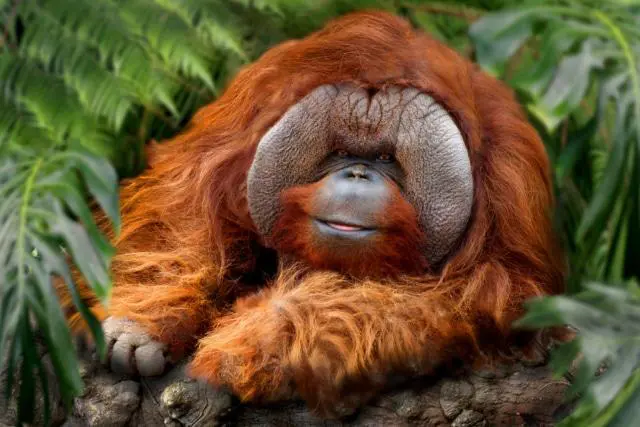Living in the Indonesian forest of Batang Toru, orangutans are the rarest monkeys on the planet, and they are threatened with extinction. Only recently have scientists discovered that these creatures are representatives of the tapanuli species and differ from their more common counterparts in more curly hair, a slightly different shape of the skull and unusual taste preferences.
Today, there are only about eight hundred such orangutans left. Not only males, but also females can boast of a beard. And besides foliage, animals love to feast on caterpillars.
Tanapuli study author Eric Meijaard argues that these orangutans may be the first example of a species extinction entirely due to modern humans. In the forests of Batang-Toru, they did not find themselves entirely of their own free will: they were driven there by hunters. Now monkeys are deprived of access to various habitats, and at the same time, the chances of survival have decreased.
And the biggest danger for tapanuli was the construction of a hydroelectric power station on the nearest river, which will occupy 122 hectares and prevent the monkeys from reproducing.
So far, the financing of the project has been stopped, but it may resume at any time. In the meantime, animal rights activists are looking for resources and opportunities to save the rare species.







